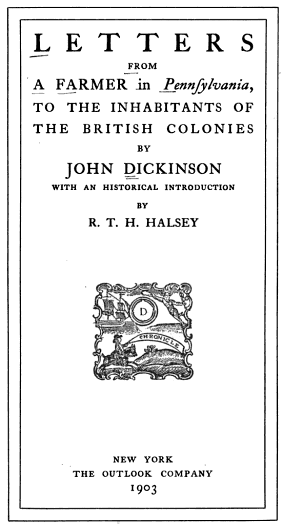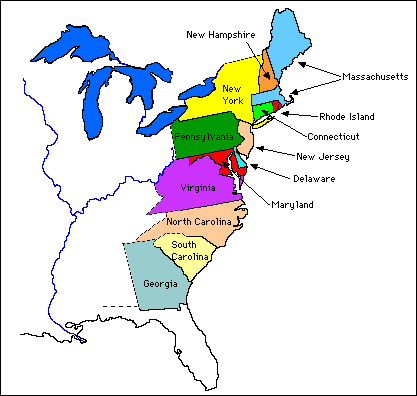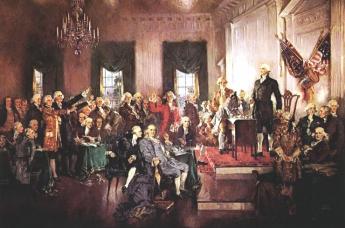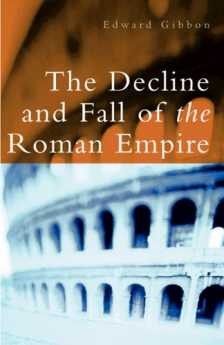Related Topics
Articles of Confederation
The Articles of Confederation were written by John Dickinson, modified by others. Officially unratified for five years, the country was ruled under them in Philadelphia, for thirteen. They taught many lessons, which we sometimes forget we had experienced.
American Finance After Robert Morris
Robert Morris can be fairly said to have made the American Revolution possible.
Dislocations: Financial and Fundamental
The crash of 2007 was more than a bank panic. Thirty years of excessive borrowing had reached a point where something was certain to topple it. Alan Greenspan deplored "irrational exuberance" in 1996, but only in 2007 did everybody try to get out the door at the same time. The crash announced the switch to deleveraging, it did not cause it.
Government Organization
Government Organization
Shaping the Constitution in Philadelphia
After Independence, the weakness of the Federal government dismayed a band of ardent patriots, so under Washington's leadership a stronger Constitution was written. Almost immediately, comrades discovered they had wanted the same thing for different reasons, so during the formative period they struggled to reshape future directions . Moving the Capitol from Philadelphia to the Potomac proved curiously central to all this.
Robert Morris: Think Big
Robert Morris wasn't born rich, or especially poor, but he was probably illegitimate. He had no recollection of his mother; his father, a tobacco trader in England, emigrated to Maryland and died rather young. It didn't take long for young Robert to become one of the richest men in America.
Robert Morris and America
Robert Morris was an energetic problem-solver. In solving those problems he devised some innovative solutions which have become such axiomatic principles of a republic and its economics, that his name is seldom associated with them.
Right Angle Club 2012
This ends the ninetieth year for the club operating under the name of the Right Angle Club of Philadelphia. Before that, and for an unknown period, it was known as the Philadelphia Chapter of the Exchange Club.
..Tax and Fiscal Issues in the Constitution, Morris (1)
For some founding fathers, monetary issues were all that mattered.
Popular Passages
New topic 2013-02-05 15:24:06 description
Two Friends Create the Articles of Confederation

|
JOHN Dickinson had been highly critical of England's treatment of its colonies. As early as 1768 he had written a book called Letters of a Pennsylvania Farmer which is credited with strongly influencing the colonies in the direction of resistance to the British Ministry. When it came time to write the Articles of Confederation, Dickinson was the lawyer selected for the task. His good friend Robert Morris had been less outspoken in opposition to the Ministry's behavior, quite possibly because he was adept at finding workarounds for his own personal business problems. But possibly he was merely maintaining an ambiguous negotiating posture, since in a hotly contested election with this as the main issue, Morris was elected by both sides in the argument. When July 4, 1776, forced the issue both Dickinson and Morris had refused to sign the Declaration, but within a few months both of them were actively fighting for the Rebellion. The truest test of their evolving attitudes might have emerged when Lord North sent the Earl of Carlisle as an emissary after Burgoyne's defeat at Saratoga, offering peace with a sort of commonwealth status for the colonies. Not much is written about this curious episode, leaving it unclear whether the British were serious, and even if they were, whether the Americans understood the offer as serious. On the surface, the British offer conceded taxation with representation as the rebellion had been demanding. But it was rejected by Gouverneur Morris acting for -- who remains unclear. It seems possible the British were exploring the true feelings of people like Dickinson and Robert Morris but were disappointed. The earlier treatment of Ireland after it had agreed to a similar half-hearted autonomy did leave British sincerity in legitimate doubt.

|
| Thirteen |
The thirteen colonies had united to fight the British King, but many of them were reluctant to unite for any other time or purpose. Rhode Island was perhaps the extreme example of this view of what Independence was supposed to mean, but the feeling existed to some degree in many colonies. Concern for the power of this feeling of tentativeness may have contributed an important reason the Articles placed heavy emphasis on declaring the document to represent a perpetual arrangement. Recognition of the weakness of this intent may have been an important reason why George Washington was later willing to sweep the issue aside, even though he of all people was most concerned to avoid the appearance of acting as an arbitrary king. For these and other reasons mainly revolving around state boundary disputes, the Articles remained unratified for years. Finally, in 1781 Robert Morris became convinced that failure to ratify was encouraging the states not to cooperate, and successfully pushed ratification through its steps. At that time, Morris was effectively running the country, even providing his own credit and funds to do it. People were reluctant to oppose his wishes, but they were also unwilling to provide the taxes, supplies, and troops that Morris imagined were being blocked by failure to ratify. Ratification of the Articles accomplished very little except to convince Morris: the Articles were flawed and must be replaced with something conferring more central power.

|
| The Goal: 1787 |
Little is known about the evolution of Constitutional thought in Morris' mind between 1781 and the Constitutional Convention in 1787, although a great deal is known about his other numerous activities. It is clear, however, that his experience with the recalcitrant Pennsylvania Legislature had been dismal, while he came to see the one insurmountable flaw in the current Federal government was its inability to levy taxes and consequently, to service national debt. The states were able to levy taxes under the Articles but erratic in doing so, resorting to paper money inflation at the first sign of tax resistance. In Morris' view, the key to the effective government was to reverse the situation; let the national government tax, let the states spend. The key to such rearrangement would be to permit the national government to spend on a very limited list of vital purposes, but bedazzle the states with a substantially unlimited shopping list if they thought they could afford it. As the accounts to pay for the Revolutionary War totaled up, it was apparent that the National Government had twice as much debt as the states. Therefore it would at most, need twice the state taxing power to service such a debt; presumably, wars would be infrequent and it would be less than that. Pay this one off, and potentially the need for future federal spending would be small. Indeed, under the presidency of James Monroe, the national debt was completely paid off, although briefly. It was almost as if Robert Morris and his pupil Alexander Hamilton had a crystal ball.

|
| Decline and Fall, Anyone? |
Robert Morris was brilliant and had six years to fashion his strategy, but he also had some help. For one thing, George Washington lived next door much of that time. By then, almost no one dared confront Washington. Adam Smith had written his book The Wealth of Nations in 1776, and Morris gave this extraordinary work as presents to his friends. Morris had corresponded with Necker, the genius financier of France, and through his good friend Benjamin Franklin, gathered insights from the rather advanced British national finance. And James Madison brought in scholarship about politics and statecraft accumulated by Witherspoon, Hume and the Scottish enlightenment. The year 1776 was a remarkable moment for new ideas. In that year, Edward Gibbon also published the first volume of The History of the Decline and Fall of the Roman Empire. The warning behind that important book had an important impact on the minds of important thinkers of the era, too.
Once you grasped all the central ideas, in this environment the resulting strategy almost worked itself out.
Originally published: Friday, February 03, 2012; most-recently modified: Sunday, July 21, 2019
| Posted by: Ezio | Jun 2, 2012 8:16 AM |